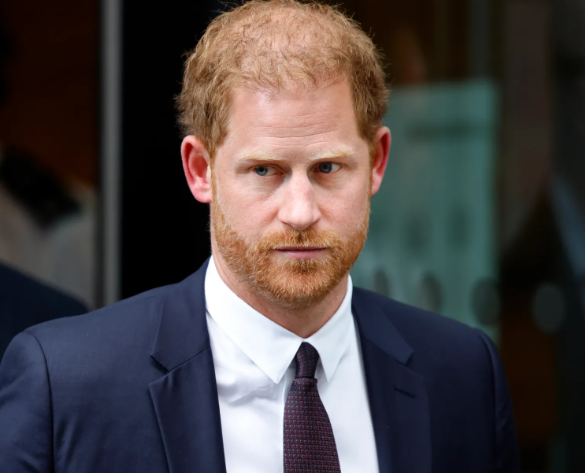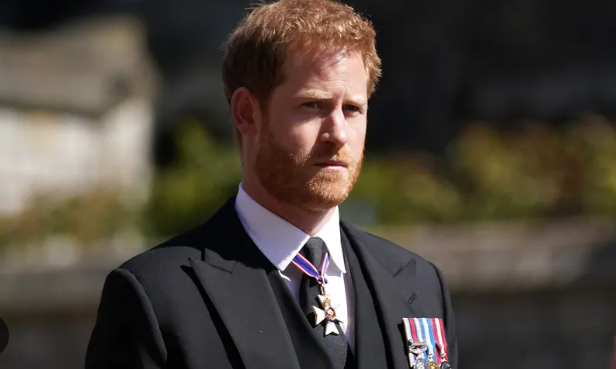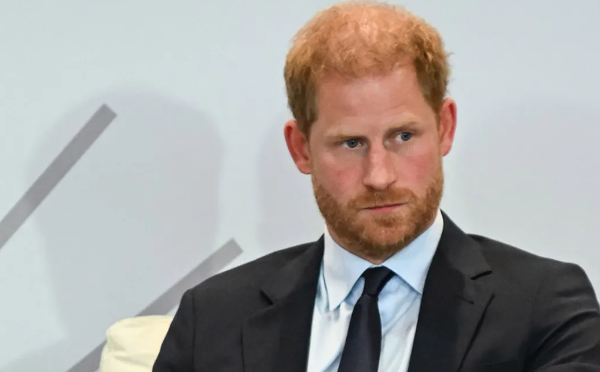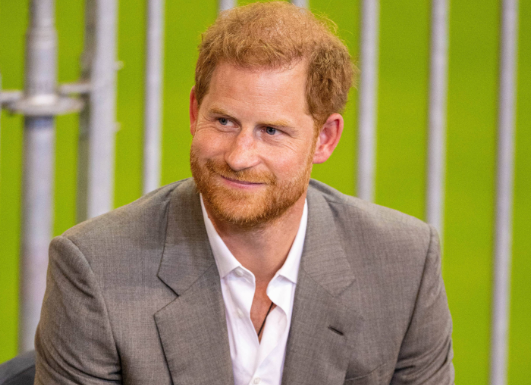Prince Harry is facing significant struggles in the U.S. as his “dark past” resurfaces, particularly following his past drug admissions. A lawsuit challenging his visa status brought the issue to light, raising concerns about his future in America. With the case now dismissed, many are left wondering how these revelations will impact Harry’s life moving forward.

Prince Harry’s “Dark Past” Comes Back to Haunt Him
Prince Harry’s life in the U.S. has become increasingly complicated following the resurfacing of a dossier that sheds light on his past drug use. The Duke of Sussex’s memoir, Spare, released in 2023, detailed his previous use of substances such as cocaine, magic mushrooms, cannabis, and ayahuasca, which has now become a source of public controversy. These confessions, once seen as part of Harry’s personal journey toward healing, are now at the center of legal and public scrutiny, particularly concerning his visa status.
The resurfacing of this “dark past” has created a wave of challenges for Harry, both legally and in terms of his reputation. While the Duke has openly discussed his struggles with addiction and his efforts to move forward, his public acknowledgment of these past behaviors has not only reignited media interest but also led to serious legal concerns about his right to reside in the U.S.
In 2023, the Heritage Foundation filed a lawsuit seeking to challenge Harry’s visa status, arguing that his admissions of drug use should disqualify him from living and working in America. This legal battle raised significant questions about how Harry’s past actions might affect his immigration status, especially given the U.S. government’s stringent policies on drug-related offenses. The lawsuit was dropped unexpectedly in September 2023, with court records sealed, leaving many wondering why the case was dismissed and whether this means the public will ever learn the full extent of the legal consequences of Harry’s past.

The Impact of Harry’s Drug Confessions on His U.S. Visa
When Prince Harry and Meghan Markle made the decision to step down from their royal duties and relocate to the U.S. in 2020, few could have predicted the series of challenges that would follow. Among the many hurdles, one of the most significant has been Harry’s visa status. The Duke’s candid admissions about his past drug use raised red flags among conservative groups and legal experts alike. Given the U.S. government’s strict immigration laws, including its stance on drug-related offenses, these revelations brought immediate concerns regarding Harry’s ability to remain in the country.
The Heritage Foundation, a conservative think tank, spearheaded the legal action against Harry, arguing that his public acknowledgment of illegal drug use should be grounds for denying him the right to stay in the U.S. According to the foundation, Harry’s voluntary admissions in Spare—made “for immense profit,” as they put it—were a clear violation of U.S. immigration laws. This legal battle stirred further controversy, as it was widely known that such public declarations could lead to adverse immigration consequences for non-citizens.
While the lawsuit was ultimately dismissed, the process has raised serious questions about the Duke’s future in the U.S. The sealed nature of the court’s ruling leaves much to speculation. Did Harry’s legal team negotiate a deal to keep his immigration status undisclosed, or was there a more significant reason behind the case’s sudden termination? Whatever the answer, Harry’s immigration saga is far from over, and this case has undoubtedly left a lasting mark on his life in America.

Public Reaction and Harry’s Struggles in the U.S.
The legal battles and media frenzy surrounding Prince Harry’s past drug use have created a precarious situation for him and his family. While many view Harry’s admissions as part of his personal growth, others see them as a liability that could harm both his public image and his future prospects in the U.S.
The public reaction has been mixed. Supporters of the Duke appreciate his openness and vulnerability in sharing his struggles with addiction. However, critics argue that Harry’s behavior is reckless, particularly given his privileged position within the royal family. The controversy surrounding his drug use, combined with the ongoing legal challenges regarding his visa, has intensified the scrutiny on him.
Moreover, the dismissal of the lawsuit leaves unanswered questions about the future implications for Harry and Meghan Markle’s life in the U.S. Although they have built a life for themselves in California, surrounded by a supportive network of friends and allies, this “dark past” continues to haunt Harry. The public’s perception of him is now intertwined with both admiration for his transparency and skepticism about his suitability as a long-term resident of the U.S.
The couple’s decision to step away from royal duties and live in America was intended to provide them with more freedom and control over their lives. Yet, as Prince Harry’s past continues to resurface in the public eye, it is clear that his journey is far from simple. The media scrutiny and legal challenges he faces in the U.S. are a stark reminder that even in the land of second chances, a royal’s past can be hard to escape.

What’s Next for Prince Harry?
As Prince Harry confronts the aftermath of his past drug use revelations, the future remains uncertain. The dismissal of the lawsuit was a small victory, but it does not mark the end of his legal struggles. The U.S. immigration system is complex, and while Harry may currently have the legal right to stay in the country, future challenges could arise—especially if more details of his visa history come to light.
Beyond the legal hurdles, Harry’s reputation and public image are also in flux. The controversy surrounding his drug use, coupled with the ongoing media attention on his personal life, may impact his ability to fully embrace his new life in the U.S. With his past now part of the public record, Prince Harry will need to carefully navigate the pressures of living in the spotlight while continuing to advocate for the causes he holds dear.
For Harry, the path forward may not be easy, but his ability to adapt to new challenges and maintain his focus on philanthropy and personal growth will likely determine his future.

As he continues to confront the lingering effects of his past, it remains to be seen how he will rise above the difficulties and secure his place in American life.


